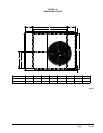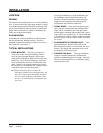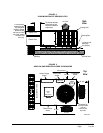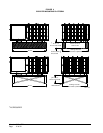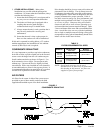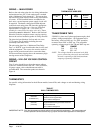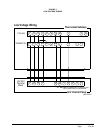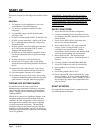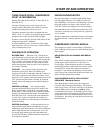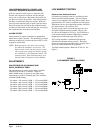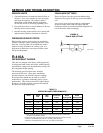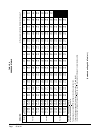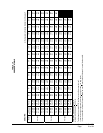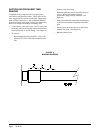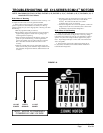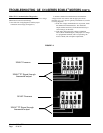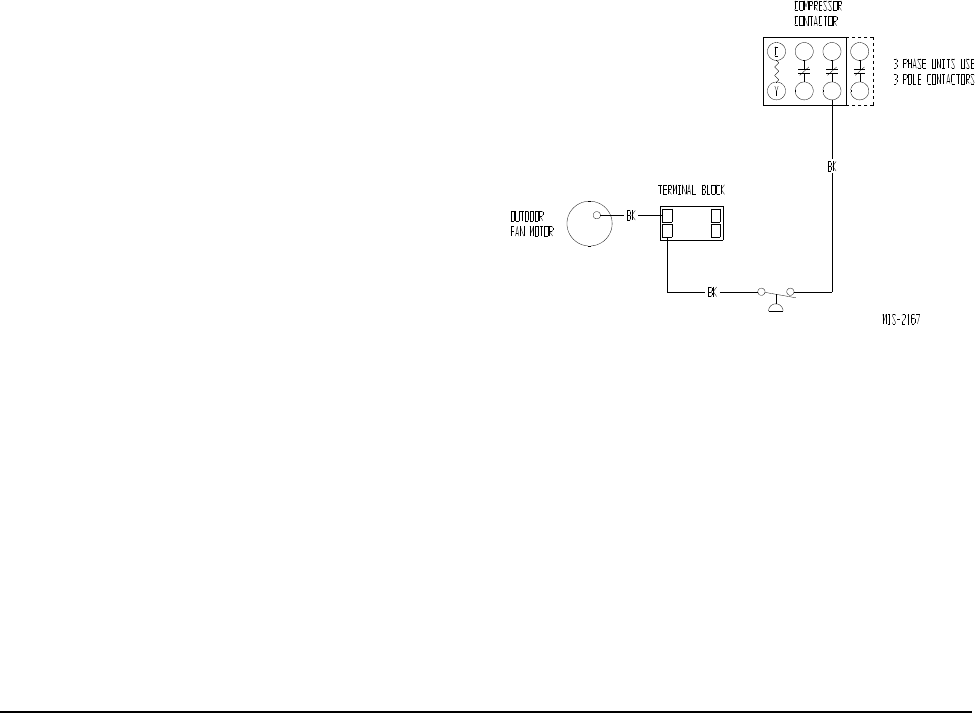
Manual 2100-467K
Page 18 of 24
LOW PRESSURE SWITCH, BYPASS, AND
LOCKOUT SEQUENCE (Standard Feature)
If the low pressure switch opens for more that 120
seconds, the compressor contactor will de-energize
and go into a soft lockout. Regardless the state of the
low pressure switch, the contactor will reenergize after
the delay-on-make time delay has expired. If the low
pressure switch remains open or opens again for longer
than 120 seconds the unit will go into manual lockout
condition and the alarm circuit will energize. Recycling
the wall thermostat resets the manual lockout.
ALARM OUTPUT
Alarm terminal is output connection for applications
where alarm signal is desired. This terminal is powered
whenever compressor is locked out due to HPC or LPC
sequences as described.
NOTE: Both high and low pressure switch controls
are inherently automatic reset devices. The
high pressure switch and low pressure switch
cut out and cut in settings are xed by specic
air conditioner or heat pump unit model. The
lockout features, both soft and manual, are a
function of the Compressor Control Module.
ADJUSTMENTS
ADJUSTABLE DELAY-ON-MAKE AND
D
ELAY-ON-BREAK TIMER
The potentiometer is used to select Delay-on-Break
time from 30 seconds to 5 minutes. Delay-on-
Make (DOM) timing on power-up and after power
interruptions is equal to 2 minutes plus 10% of Delay-
on-Break (DOB) setting:
0.5 minute (30 seconds) DOB = 123 second DOM
1.0 minute (60 seconds) DOB = 126 second DOM
2.0 minute (120 seconds) DOB = 132 second DOM
3.0 minute (160 seconds) DOB = 138 second DOM
4.0 minute (240 seconds) DOB = 144 second DOM
5.0 minute (300 seconds) DOB = 150 second DOM
FIGURE 7
LOW AMBIENT CONTROL WIRING
LOW AMBIENT CONTROL
Optional Low Ambient Control
An optional low ambient control is available for both
factory and eld installed options. The low ambient
control is to be applied to the PA13 Series models when
operation below 55° outdoor conditions are anticipated.
Without this device, the evaporating pressure would fall
off, and the indoor coil would ice over.
The fan cycling control cycles the fan motor on, once
the liquid refrigerant pressure reaches 350 psig, and
off, once it has dropped to 225 psig. It will continue to
cycle between these parameters depending on outdoor
temperatures and the load/stage of the system.
This cycling maintains a minimum liquid pressure
affecting the minimum suction pressure. This effect
insures an evaporating temperature that is slightly above
the point of ice formation on the evaporator.
This eld installed option is Bard Part #CMA-28. See
Figure 7.



